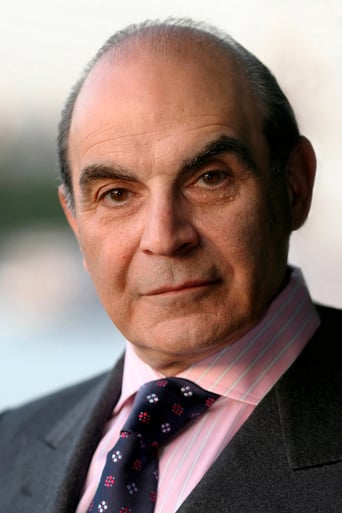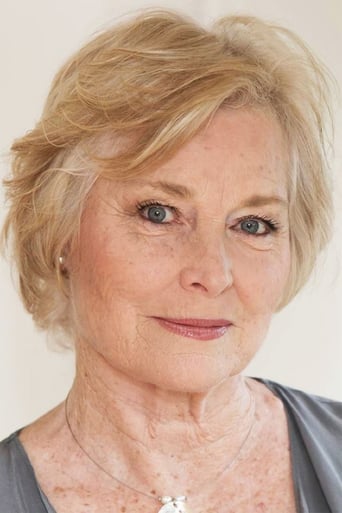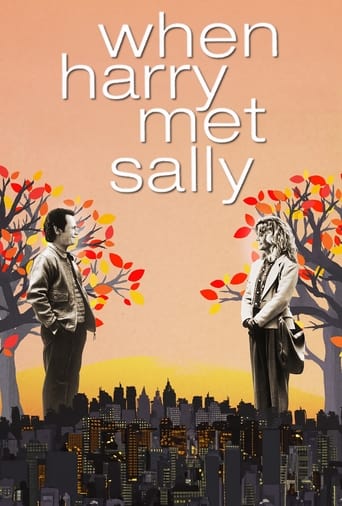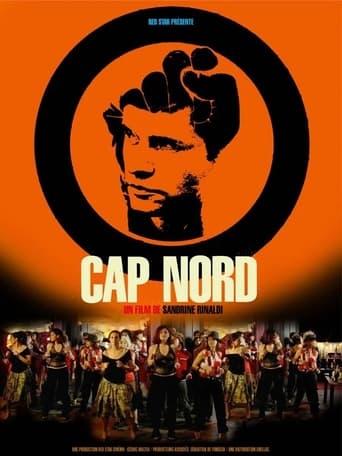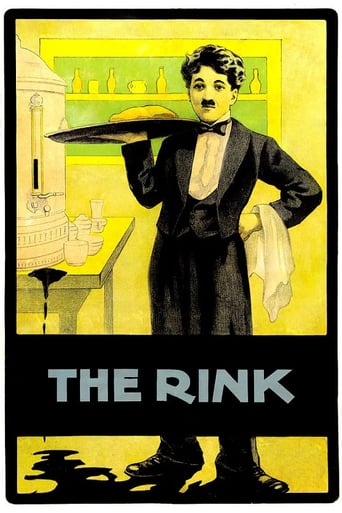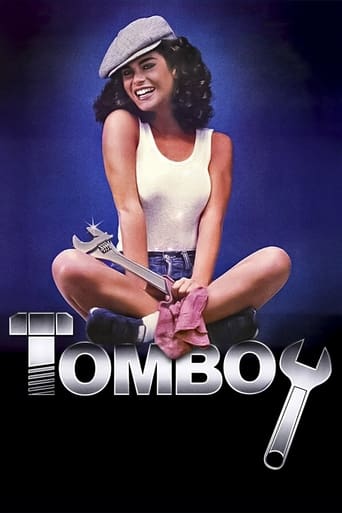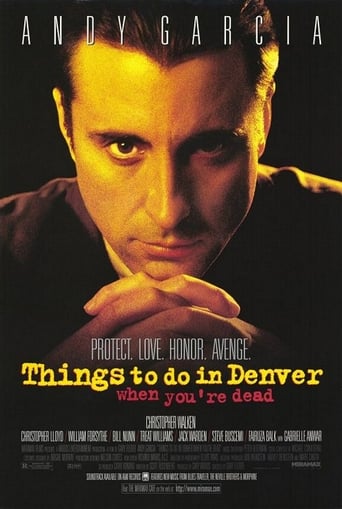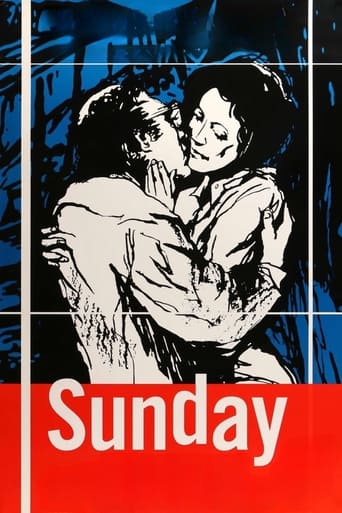

Sunday (1997)
This film concerns two mysterious characters who meet on a Sunday in Queens. Madeleine the most unsettling creature of that name since "Vertigo" is a middle-aged, moderately successful actress. Oliver/Matthew is either a homeless man or a famous film director or both. Madeleine hails him on the street as the latter, launching a bizarre chain of events that includes a conversation in a diner, a very unromantic sexual encounter, the arrival of Madeleine's odd husband and unsuspecting daughter, and a child's birthday party. The film also compassionately tracks the daily rounds of Oliver/Matthew's fellow denizens of the homeless shelter, some of whom will be recognizable to New York audiences.
Watch Trailer
Cast
Similar titles


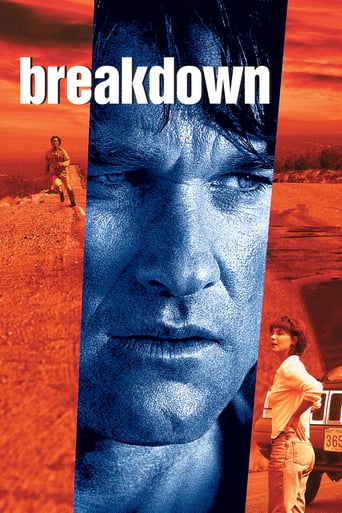
Reviews
I wanted to but couldn't!
Crappy film
It's the kind of movie you'll want to see a second time with someone who hasn't seen it yet, to remember what it was like to watch it for the first time.
It’s not bad or unwatchable but despite the amplitude of the spectacle, the end result is underwhelming.
Talking to a family friend about films he was after,I got told about an indie movie starring David Suchet. Checking on Amazon,I was surprised to find that it had only come out on DVD in France,which led to me watching it before the end of the week.The plot:Walking back home with a plant, former actress Madeleine Vesey spots a homeless man who looks just like film maker Matthew Delacorta. Believing him to be Delacorta, Vesey takes him for a bite at a diner. Attempting to talk about his work,Vesey finds Delacorta's memories to remain vague. Over the next few days "Delacorta" hints to Vesey that he is actually a different guy called Oliver,which leads to Vesey struggling to tell what is real and what is fiction with Oliver/Delacorta.View on the film:For a title shot in the US with two non-American leads using fake US accents and the film itself only being on DVD in France,co-writer (with James Lasdun)/director Jonathan Nossiter fittingly goes for a peculiar atmosphere,with the indoor scenes being shot in cramped camera angles that bring a tight closeness to Oliver/Delacorta and Vesey's relationship. Making his first non-documentary work, Nossiter retains the grit in his fiction debut via taking inspiration from the American New Wave and shooting on the streets of Queens New York.Subtly slipping in an ingenious twist ending,the screenplay by James Lasdun and Nossiter keep the dialogue wonderfully brittle,as Oliver / Matthew Delacorta vagueness over his identity allows Vesey to paint their relationship/ the "homeless man" into the corner that she sees fit. Bravely appearing naked in sex scenes, Lisa Harrow and David Suchet each give impeccable performances as Vesey and Oliver / Matthew Delacorta. Openly stating the pity she feels for him in front of his face,Harrow gives Vesey an expressive bohemian vibe,which strikes a fuse when Vesey learns left-field secrets about Oliver / Matthew Delacorta. Playing his real identity constantly in doubt, David Suchet shines in his timed exchanges with Vesey,and a fumble nature in revealing personal info at the end of the week.
I loved the beginning--the way you can't quite tell what the setting is, or who the main character is...the story is out of focus the way the world is to Oliver when he takes his glasses off.At the beginning, it stated somewhere that this film was based on a story called "Ate, Memos: the Miracle". All while watching it, I kept trying to figure out what the memos were. A lot of the film was in blue and orange. I wonder what those colors meant to the producer?When they were telling each other those stories, Oliver's was true but Madeleine didn't know it (although at first I thought she did)--and Madeleine made hers up, but Oliver thought she was telling the truth (and so did I!).That husband of hers was really scary. What was he trying to do? I didn't quite catch the story about the ex-husband and the couple in the shower, but it probably was supposed to connect with the scene where the plant was in the shower.That scene on the street when they run into the other men from the shelter was really weird--very spooky and unreal the way Oliver was suspended between them and Madeleine. Must have seemed that way to him, too. Lots of blue and orange there, too. When Oliver paid for their meals at the diner, I knew their relationship was doomed. How could he afford to keep up the pretense?What was the significance of those plants behind plastic in the bedroom? Did they represent Oliver? He was half dead (spiritually, anyhow), Madeleine brings him home and revives him, but doesn't really see him. It's like she's looking at him through not very clear plastic.Madeleine looked like Manet's Olympia, the way she was posed on the bed at the end.....I wish I knew what happened between Oliver's gazing at her there and ending up back on the street. Did she see that fax and realize that he was an imposter? Or did she know already and not care? Could he have told her the truth before he left? Was she using him, thinking of course that he was a producer? It didn't seem like a love story to me, just a couple of unhappy people who got caught in a time warp together.The saddest part was watching Oliver warming his hands on her radiator, knowing that he was going to be on the street all night in the cold, because it was past curfew. I wonder if that one day of being considered a "real" (read: not homeless) person was worth losing his place at the shelter. I expect Madaleine probably went back to England and Oliver managed to pull himself together, find some sort of a life.....but changed, of course!I really want to see it again and try to figure some of this out.
A delight in a world where "if you don't know what's going on in the first thirty seconds, you're lost." The first half-hour or so lets a viewer take in another world, one with which she may not be familiar, and allows a gradual "easing into" the plot, which sheds far more light on human behavior than almost any ten glossy, big-budget H-wood films out there. Most won't want to do the work required to fully appreciate this film. Take the time, talk it over, then get Signs and Wonders.
If Queens is truly an `un-place,' then 'Sunday' is an `un-film.' That is to say un-believably magnificent! To give this masterpiece a particular label, would rob this wonderfully imaginative film of the root of its quirky charm.I was not familiar with the work of either David Suchet or Lisa Harrow, though I did recognize the name of the director, Jonathan Nossiter.This delightful and honest film rearranges stereotypical categorizations and societal stigmas by transporting us to the `other side of the glass.' While not in great detail, we are acquainted with each member of the men's shelter, which is the location around which 'Sunday' revolves. Some characters are endearing, such as the Vietnamese man who sings opera tunes to canned music in the subway for change, or Ray, the red-haired chain-smoking man who roams the street looking at women's legs and relentlessly searching for the ultimate porn mag.I believe that this again supports the central theme, which discourages as well as discredits the practice of labeling and stigmatizing. The viewer is forced instead, to get to know the men and appreciate each of them on the basis of their individuality.'Sunday' creatively addresses many issues: shame, regret, pride, and deceit. Suchet's character, the protagonist, Oliver Levy-who may or may not be an alias for the famed film director, Matthew de la Corta-is a disillusioned middle-aged fellow who, by way of an unlikely exchange on the streets if Queens, meets Harrow's Madeleine, a woman of similar age and emotional status. The pretense of their meeting is initially awkward and unusual, if not completely bizarre.However, as the film progresses, a most amazing transformation occurs. Within a mere twelve-hour period, amid large amounts of uncertainty, assumption and tactful execution of the imagination, Madeleine and Matthew become tremendously close. By evening, after a few choice run-ins with Madeleine's estranged (as well as strange) husband, Ben, she and Matthew are seen holding hands in a Queens diner, talking intimately like old friends.The point is finally stated-after having been corroborated by the preceding film-that although the world would like to base our worth on `what we do,' in the sense of corporate achievement, the true quality of a person lies, rather, in who we think we are. The way in which we are perceived and subsequently accepted by the people who love us and believe in our potential to succeed, is far more instrumental in our pursuit of fulfillment.Life, inside as well as outside the shelter, is a collection of intricate and unique parts that constitute a whole. Each person has within himself or herself the power to be great, but greatness is subjective. This film proves that love can be found anywhere, whether in a shabby diner over the odd Ozarta, or while walking back from a subway lugging a large house plant.'Sunday' gloriously shows us that whether ones glasses are on or off, it is not with the eyes, but with the heart that we can clearly see the wondrous spectacle of true love.
